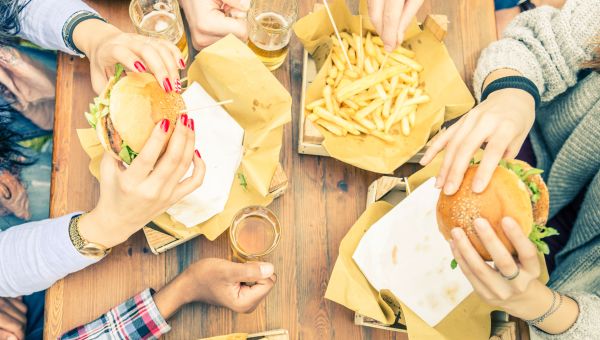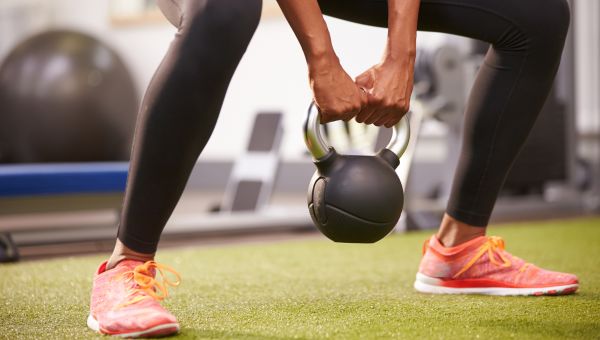The dos and dont's of intermittent fasting
Is intermittent fasting right for you?
Updated on December 8, 2022

Fasting isn’t a new concept—many religions have practiced it for centuries. But it has become increasingly popular as a way to lose weight and improve overall wellness. Some preliminary studies also suggest intermittent fasting may help reduce the risk of diabetes, heart disease, and certain cancers. Read on to see if fasting is right for you—and how to do it safely.

DO: Make a Plan
Intermittent fasting has different options—from skipping one or two meals a day, to reducing your daily calories by 75 percent, to consuming nothing but water for 16 to 36 hours. Talk with your healthcare provider before you begin and decide together what makes the most sense for you.

DON’T: Fast With a Health Condition
Fasting isn’t for everyone, especially those with chronic illnesses (like type 1 or 2 diabetes) or a history of eating disorders, according to Anne Brock, RDN, LD, a specialist in weight loss and diabetic education in Caldwell, Idaho. Children, teens, and pregnant or nursing people should avoid intermittent fasting, as well.

DON’T: Overindulge the Night Before
The day before starting a fast, avoid overindulging in a fatty-but-filling meal like a burger and fries. Instead, fuel your body with slow-burning nutrients. “Get some carbohydrates, protein, and unsaturated fats to ensure you’re getting nutrient-dense foods, rather than a high-fat meal right before fasting," suggests Brock.

DO: Drink Lots of Water
Proper hydration is key during a fast. It can also help curb hunger. In addition to drinking water, you’ll need to replace the hydration you'd normally receive from water-dense foods.
Still feeling those hunger pangs? Sip plain tea, black coffee, diet soda, or another low-calorie drink to keep your stomach from feeling too empty.

DON’T: Work Out Too Hard
You'll want to avoid any high-intensity workouts during a fast, but light-to-moderate exercise may actually be beneficial.
One review, published in Nutrients in 2020, looked at the effects of resistance training combined with various intermittent fasting protocols. The review found that, generally, intermittent fasting combined with resistance training helped maintain lean body mass while promoting fat loss.

DO: Listen to Your Body
Intermittent fasting affects everyone differently, so it’s important to listen to your body. If you feel dizzy or weak, or if your fast is affecting your ability to complete everyday functions, stop. According to Brock, “It’s important for people to keep in mind that they may feel fatigued, irritated, distressed, depressed, and confused on fasting days."

de Cabo R, Mattson MP. Effects of Intermittent Fasting on Health, Aging, and Disease. Longo DL, ed. New England Journal of Medicine. 2019;381(26):2541-2551.
Bartholomew CL, Muhlestein JB, et al, Randomized controlled trial of once-per-week intermittent fasting for health improvement: the WONDERFUL trial, European Heart Journal Open, Volume 1, Issue 2, September 2021, oeab026.
Dong TA, Sandesara PB, et al. Intermittent Fasting: A Heart Healthy Dietary Pattern? Am J Med. 2020 Aug;133(8):901-907.
Clifton KK, Ma CX, et al. Intermittent fasting in the prevention and treatment of cancer. CA: A Cancer Journal for Clinicians. November/December 2021. 71(6); pp527-546.
Yuan X, Wang J, et al. Effect of Intermittent Fasting Diet on Glucose and Lipid Metabolism and Insulin Resistance in Patients with Impaired Glucose and Lipid Metabolism: A Systematic Review and Meta-Analysis. Int J Endocrinol. 2022 Mar 24;2022:6999907.
Mayo Clinic. Is it true that occasionally following a fasting diet can reduce my risk of heart disease? October 8, 2022.
Cleveland Clinic. Intermittent Fasting: How It Works and 4 Types Explained. March 3, 2022.
Ogłodek E, Pilis Prof W. Is Water-Only Fasting Safe? Glob Adv Health Med. 2021 Aug 5;10:21649561211031178.
John Hopkins Medicine. Intermittent Fasting: What is it, and how does it work? Published 2021.
Zouhal H, Saeidi A, et al. Exercise Training and Fasting: Current Insights. Open Access J Sports Med. 2020 Jan 21;11:1-28.
Keenan S, Cooke MB, Belski R. The Effects of Intermittent Fasting Combined with Resistance Training on Lean Body Mass: A Systematic Review of Human Studies. Nutrients. 2020;12(8):2349.
More On


video

article

slideshow


video


video
